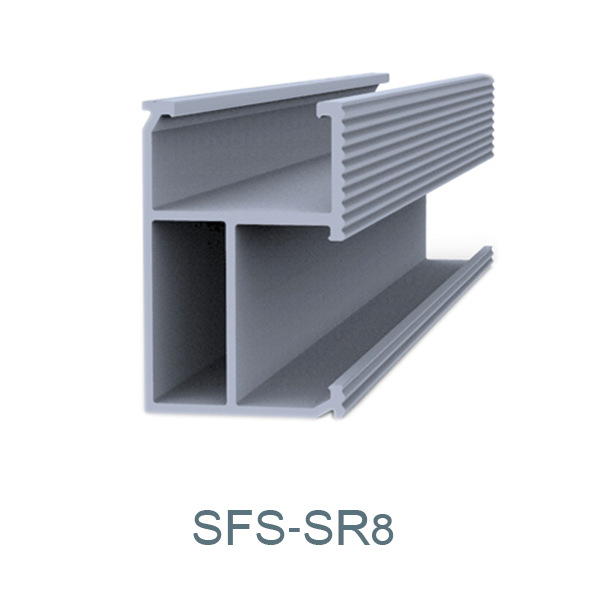

Fully Threaded Stud Bolts for Enhanced Strength and Reliability in Applications
Dec . 14, 2024 03:13 Back to list
Fully Threaded Stud Bolts for Enhanced Strength and Reliability in Applications
Understanding Fully Threaded Stud Bolts A Comprehensive Overview
In the realm of mechanical engineering and construction, fasteners play a pivotal role in ensuring the integrity and stability of structures. Among these fasteners, the stud bolt stands out for its versatility and reliability. Fully threaded stud bolts, in particular, have garnered significant attention due to their unique characteristics and applications. This article delves into the details of fully threaded stud bolts, exploring their design, benefits, applications, and installation guidelines.
What is a Fully Threaded Stud Bolt?
A fully threaded stud bolt is a cylindrical fastener that is fully threaded along its entire length. Unlike standard bolts that have a portion of their length left unthreaded, the fully threaded design allows for a greater bearing surface and enables load distribution along the entire length of the stud. Typically made from high-strength materials such as stainless steel, carbon steel, or alloy steel, fully threaded stud bolts are engineered to withstand high tensile and shear loads in various environments.
Benefits of Fully Threaded Stud Bolts
1. Enhanced Load Distribution One of the key advantages of fully threaded stud bolts is their ability to distribute loads evenly across the entire length of the bolt. This feature minimizes the risk of localized stress concentrations, which can lead to premature failure.
2. Versatility Fully threaded stud bolts can be utilized in a wide range of applications, from heavy industrial machinery to light automotive components. They can be easily adjusted to accommodate different thicknesses and materials, making them a versatile choice for many projects.
3. Increased Strength With a fully threaded design, these studs provide enhanced grip and support. They can accommodate larger nuts and washers, leading to a more secure fastening solution, especially under dynamic loads.
4. Ease of Installation Installation of fully threaded stud bolts is straightforward. They can be secured with nuts on both ends, allowing for flexibility during assembly and disassembly. This characteristic is particularly beneficial in maintenance situations where components may need to be frequently accessed or replaced.
Applications of Fully Threaded Stud Bolts
Fully threaded stud bolts are found in various industries due to their robustness and adaptability
. Common applications includestud bolt fully threaded

- Construction In structural applications, fully threaded stud bolts are used to connect steel beams, girders, and columns, ensuring the overall stability and safety of structures. - Oil and Gas Industry These fasteners are essential in connecting pipe flanges and securing pressure vessels, where high levels of tension and prevention of leakage are critical.
- Marine Applications Due to their resistance to corrosion, fully threaded stud bolts are ideal for marine environments, where exposure to saltwater can be detrimental to many other fasteners.
- Automotive and Aerospace In automotive and aerospace engineering, the use of fully threaded stud bolts is prevalent in applications requiring high strength-to-weight ratios and reliable fastening solutions.
Installation Guidelines
When installing fully threaded stud bolts, proper techniques must be employed to ensure optimal performance. Here are some essential steps to consider
1. Preparation Ensure surfaces are clean and free from debris to ensure proper contact between the bolt, nut, and mating surfaces.
2. Tightening Use a calibrated torque wrench to tighten the nuts to the manufacturer’s specifications. This step prevents over-tightening, which can lead to material failure.
3. Alignment Ensure that the stud bolt is aligned correctly and perpendicular to the surface to avoid undue stress on the bolt and surrounding components.
4. Lubrication In some cases, lubrication may be necessary to reduce friction during installation. Always use a suitable lubricant approved for the materials in use.
In conclusion, fully threaded stud bolts are vital fasteners in numerous applications across various industries. Their design offers distinct advantages, contributing to safe and efficient assemblies. Whether in construction, automotive, or marine applications, understanding the features and proper handling of fully threaded stud bolts can greatly enhance the durability and performance of any assembly.
Latest news
-
High-Strength Hot-Dip Galvanized Bolts-Hebei Longze|Corrosion Resistance&High Strength
NewsJul.30,2025
-
Hot Dip Galvanized Bolts-Hebei Longze|Corrosion Resistance&High Strength
NewsJul.30,2025
-
Hot Dip Galvanized Bolts - Hebei Longze | Corrosion Resistance, High Strength
NewsJul.30,2025
-
High-Strength Hot Dip Galvanized Bolts-Hebei Longze|Corrosion Resistance, Grade 8.8
NewsJul.30,2025
-
Hot Dip Galvanized Bolts-Hebei Longze|Corrosion Resistance,High Strength
NewsJul.29,2025
-
High-Strength Hot Dip Galvanized Bolts - Hebei Longze Metal Products Manufacturing Co., Ltd.|corrosion resistance&high strength
NewsJul.29,2025

